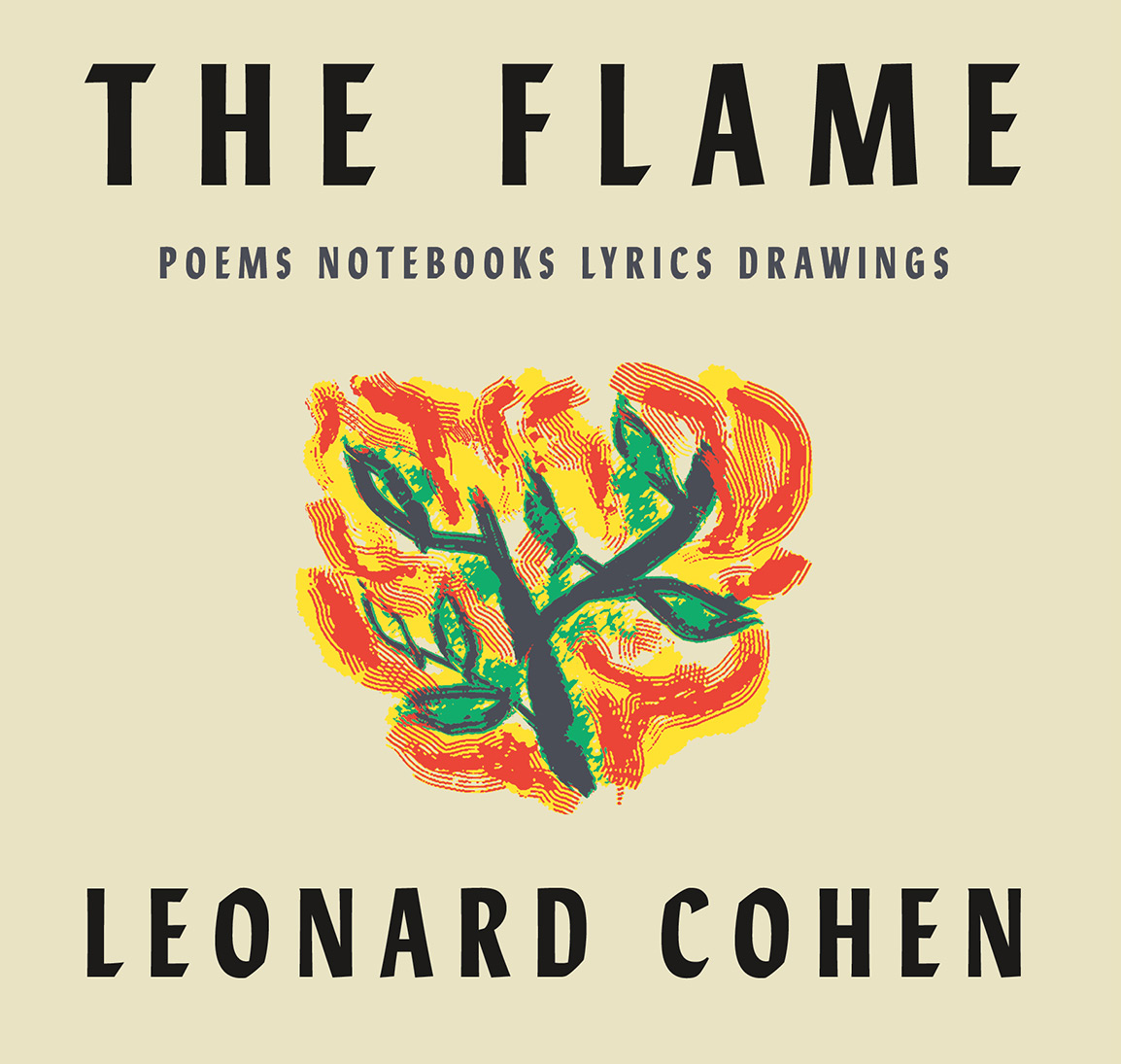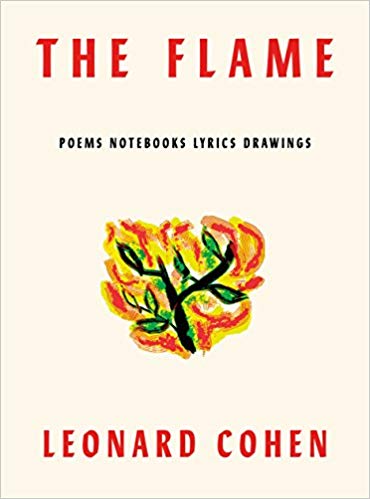

Memorializing Cohen is a prospect both complicated and fraught, more so than in most cases, given that everything in Cohen resists enshrinement-he was only ever valedictorian in jest. Cohen died in November 2016, and the intervening years have seen the unveiling of projects such as the Musée d’art contemporain de Montréal’s expansive exhibit Leonard Cohen: A Crack in Everything and Art of Time Ensemble’s concert series A Singer Must Die. There is more than enough excellent work in this book to justify one’s interest, but upon closer inspection, The Flame, with its smorgasbord construction, inevitably begins to resemble a memorial, particularly when regarded as adjacent to a wave of recent enterprises offering various positions on Cohen’s legacy. This same twilight tenor permeates The Flame, a volume of previously unpublished or uncollected poems, as well as lyrics, illustrations, material gathered from his vast trove of notebooks, a brief electronic correspondence with poet Peter Dale Scott, and a transcript of Cohen’s acceptance address for the Prince of Asturias Award. I’ve lost track of the number of people who have commented on the sepulchral arc of Cohen’s final record, You Want It Darker-released less than three weeks before his death-as though he hadn’t been reporting from astride the grave for much of his sixty-year career. That this artist who had long held mortality, apocalypse, and suicide as muses should finally surrender to the void generates a wonder that enhances grief. Perhaps the poignancy of Cohen’s death was heightened by its lateness, by the duration of its anticipation. One could argue that much of Cohen’s art was self-absorbed, yet it nevertheless seemed to speak directly, intimately, to us, as though by examining his own inner life with such unflinching rigour he’d gained access to some collective psychic well.

Perhaps because Cohen’s work possesses a highly particular ability to mirror the experience of those who respond to it. So no tragedy, yet Cohen’s fall through the mirror was nonetheless devastating to many. And, as always, he’d been writing-“blackening pages,” exercising the vocation that had occupied him since his youth and won him accolades since the publication of his first book of poetry in 1956. He’d recovered from financial ruin by touring the world, selling out colossal venues, performing long enough some nights to rival Bruce Springsteen.

He’d been working at a gallop, producing three albums over his last six years-three of his finest, as it happens. He was eighty-two and loved ones were near. The death of Leonard Cohen was not a tragedy.


 0 kommentar(er)
0 kommentar(er)
